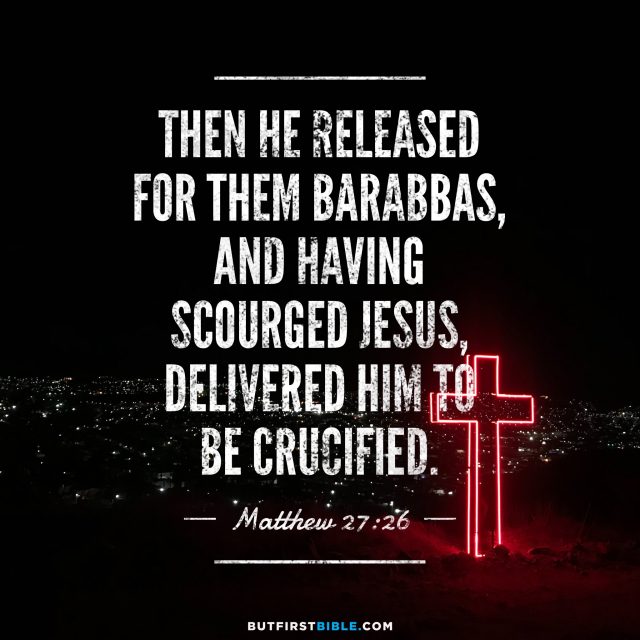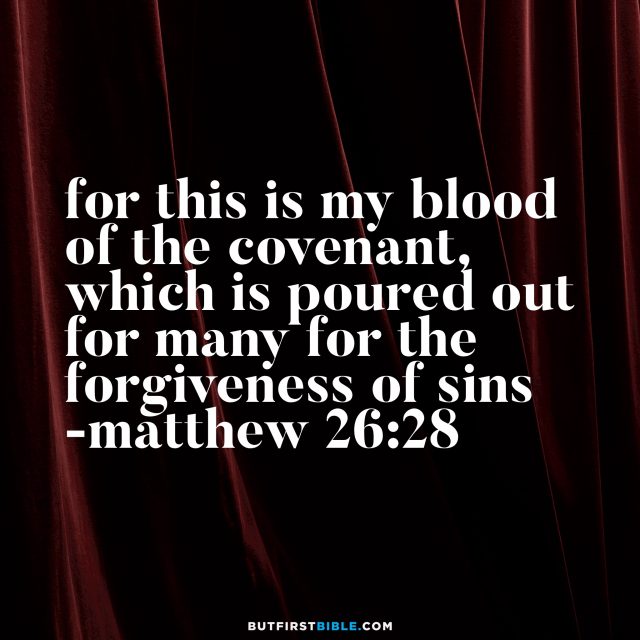
DAVEMIERS.COM

Welcome to the “But first, Bible” daily devotional podcast with Dave Miers.
Our readings for today are Leviticus 20-21 and Matthew 28:1-20.
Good news. Jesus’ tomb is empty! He died on the cross, but on the third day, he rose from the dead. This was surprising news for the disciples in Matthew 28. However, it shouldn’t have been a surprise as Jesus said specifically back in chapter 16, chapter 17, chapter 19 that he would suffer, die, and then be raised again.
The empty tomb of Jesus is the guarantee that all those who trust in him will also have empty tombs. Jesus died on the cross, in our place, and for our sin. Jesus rose from the dead and offers resurrected eternal life to all who trust in Him.
There’s been a bunch of mountain top experiences throughout Matthew’s Gospel, and now the final scene of this book has Jesus – once again – on a mountain top with his disciples. What is the final message that Jesus gives his disciples before he ascends back up to heaven?
Let me read from Matthew 28:18-20,
[18] And Jesus came and said to them, “All authority in heaven and on earth has been given to me. [19] Go therefore and make disciples of all nations, baptizing them in the name of the Father and of the Son and of the Holy Spirit, [20] teaching them to observe all that I have commanded you. And behold, I am with you always, to the end of the age.” (ESV)
This is often called by commentators: The Great Commission. Three things to notice:
Continue reading “Feb 15 – Leviticus 20-21; Matthew 28:1-20 – THE GREAT COMMISSION”

Welcome to the “But first, Bible” daily devotional podcast with Dave Miers.
Our readings for today are Leviticus 18-19 and Matthew 27:32-66.
Today we will reflect upon the moment that the whole of Matthew’s gospel has been leading up to: the death of Jesus on the cross.
We will focus on a few verses from Matthew 27, but we will also refer back to yesterday’s Leviticus 16 reading to show how the Day of Atonement is a shadow of the events that are to come in Jesus’ death on the cross.
Let me begin by reading from Matthew 27:45–46,
[45] Now from the sixth hour there was darkness over all the land until the ninth hour. [46] And about the ninth hour Jesus cried out with a loud voice, saying, “Eli, Eli, lema sabachthani?” that is, “My God, my God, why have you forsaken me?” (ESV)
Darkness over the land at midday is not normal. Something supernatural was taking place. In the Bible light is a symbol of God’s blessing and darkness is a symbol of God’s judgement. The darkness that descends is a physical picture of the spiritual reality that is taking place at the cross. Jesus quotes Psalm 22 saying, “My God, my God, why have you forsaken me?”
God is acting in judgement and Jesus is being forsaken. What does that mean? This is an emphasis not just on the physical pain of crucifixion – verse 35 simply says ’they had crucified him’, but on the spiritual pain of THIS crucifixion. We’ve already seen back in Matthew 26 when Jesus prayed in Gethsemane that his soul was sorrowful even to death at the contemplation of drinking the cup of God’s wrath at the cross.
Continue reading “Feb 14 – Leviticus 18-19; Matthew 27:32-66 – THE DEATH OF JESUS”

Welcome to the “But first, Bible” daily devotional podcast with Dave Miers.
Our readings today are from Leviticus 15-17 and Matthew 27:1-31. If you haven’t had a chance to read the Bible yet, maybe pause this podcast to go hear from God’s word, and then come back for my brief reflection on Matthew 27.
Okay, welcome back.
Over today and tomorrow, we are reading about the death of Jesus on the cross in Matthew’s gospel.
I want to focus on theology and history. History describes what took place. Theology describes why – from God’s perspective – it took place.
Our keyword for this study is SUBSTITUTION.
First, we will look at substitution from a theological perspective.
The following is a quote from John Stott’s magnum opus – The Cross of Christ – in his chapter on ’The Self-Substitution of God’.
“The concept of substitution may be said to lie at the heart of both sin and salvation. For the essence of sin is man substituting himself for God, while the essence of salvation is God substituting himself for man. Man asserts himself against God and puts himself where only God deserves to be; God sacrifices himself for man and puts himself where only man deserves to be. Man claims prerogatives that belong to God alone; God accepts penalties that belong to man alone.” (John Stott, The Cross Of Christ)
Second, we will look at substitution from a historical perspective.
Continue reading “Feb 13 – Leviticus 15-17; Matthew 27:1-31 – BARABBAS & SUBSTITUTION”

Welcome to the “But first, Bible” daily devotional podcast with Dave Miers.
Our readings today are from Leviticus 14 and Matthew 26:55-75.
I shared a couple of weeks ago two of my favourite books, the New Bible Commentary and the New Bible Dictionary. Both excellent tools to help you dig a little deeper into God’s word. Go check out the Feb 5 podcast for more details.
I wanted to briefly share another resource today. Over at esv.org you can now access the Global Study Bible for free. It’s a really simple guide that will give you insights into the text, characters, and other related cross-references in the Bible. Go check it out and let me know how you find it.
—
Today, we will continue our study of Matthew 26 as we see Jesus get even closer to his death on the cross. I want to focus on two of Jesus’ disciples and their role in these events.
Judas and Peter.
First, Judas. Earlier in Matthew 26, Judas agrees to hand over Jesus to the chief priests for 30 pieces of silver. And by this part of our reading, it has now happened.
Continue reading “Feb 12 – Leviticus 14; Matthew 26:55-75 – JUDAS & PETER, YOU & ME”

Welcome to the “But first, Bible” daily devotional podcast with Dave Miers.
Our Old Testament reading is from Leviticus 13 and our New Testament reading is from Matthew 26:20-54.
We haven’t reflected on our Matthew reading for over a week, so it’s worth doing so today. I hope you’ve been enjoying the opportunity to slow down and read a few paragraphs per day as Jesus gets closer to his death and resurrection.
Before we reflect on our Matthew reading, it’s worth doing a quick recap of one of the major events in Exodus. If you’ve been following along with this podcast for a while, hopefully the events of the Exodus are still fresh from our readings.
The book of Exodus began with God’s people – the Hebrews – being numerous in population, but also oppressed and enslaved under the harsh regime of Pharaoh in Egypt. Remember – the LORD heard their groaning and said that he would rescue them. The LORD raised up Moses and Aaron to lead the people and they had the task of approaching Pharaoh to ask him to let God’s people go. He refused, and upon each refusal, the LORD sent a series of plagues in judgement upon the Egyptians.
The tenth plague – the death of the firstborn – was the most devastating of all. On that night all the firstborns were struck down. But the LORD passed over the homes of the Israelites who had painted the blood of a lamb on their doorposts.
After they were spared from death, God’s people came out of Egypt having been saved by the LORD. Immediately after their rescue, Moses said to the people, “remember this day in which you came out from Egypt, out of the house of slavery, for by a strong hand the LORD brought you out from this place.” (Exodus 13:3). And the Passover Feast of Unleavened Bread was instituted.
Every year – God’s people were to celebrate the Passover – remembering God’s mighty act of redemption.
Continue reading “Feb 11 – Leviticus 13; Matthew 26:20-54 – THE LORD’S SUPPER”